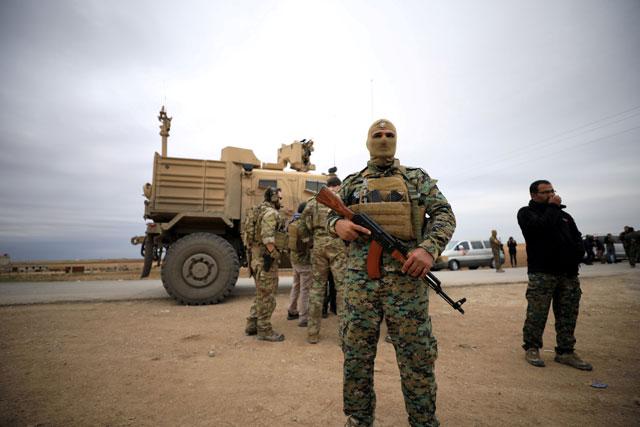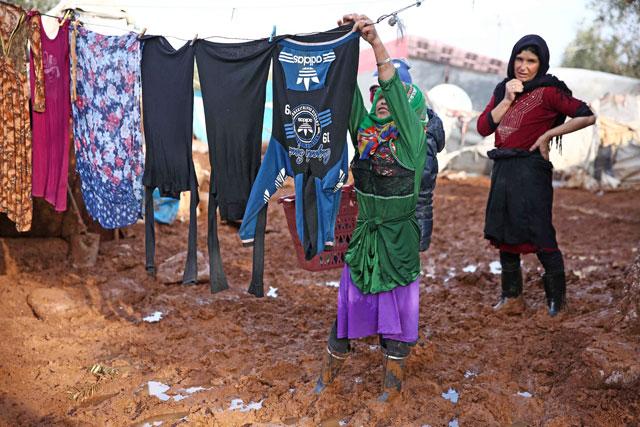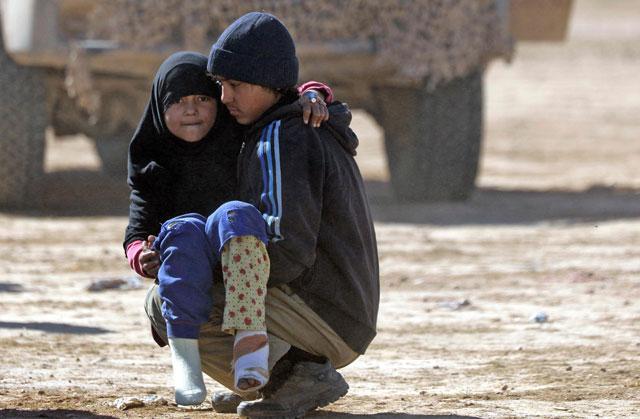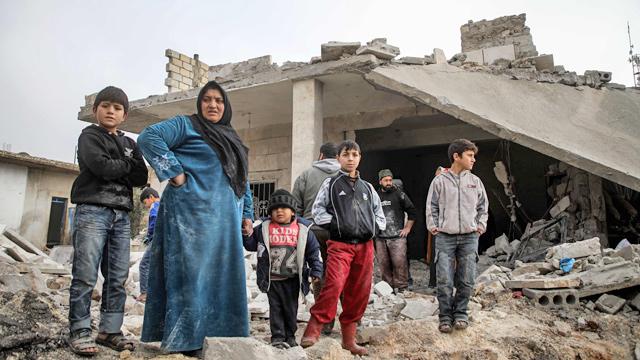You are here
US anti-Daesh meeting turns to damage control after Syria decision
By Reuters - Jan 05,2019 - Last updated at Jan 05,2019

Syrian Democratic Forces and US troops are seen during a patrol near Turkish border in Hasakah, Syria, November 4, 2018 (Reuters photo)
WASHINGTON — A routine US-hosted conference of nations fighting the Daesh militant group has become a damage control effort following US President Donald Trump’s decision to withdraw from Syria, sources familiar with the matter said on Friday.
The previously scheduled conference, tentatively set for Febebruary 7 in Washington, aims to gather ministers from many of the 79 nations in the Global Coalition To Defeat Islamic State and galvanise their fight against the militant group.
However, Trump’s shock December 19 decision to withdraw and the mixed signals Washington has sent about when it may pull out the roughly 2,000 US troops in Syria have left US allies and partners rethinking their own commitments.
In the latest ambiguous signal, a senior State Department official on Friday first told reporters the United States has no timeline for the withdrawal of troops from Syria and then said it does not plan to stay indefinitely.
Another senior State Department official, also briefing reporters before Secretary of State Mike Pompeo’s trip to the Middle East next week, said one of his main messages would be that ‘‘the United States is not leaving the Middle East’’.
‘‘Despite reports to the contrary and false narratives surrounding the Syria decision, we are not going anywhere.”
However, three sources familiar with the matter said that the Trump administration is still working assiduously to contain the fallout from Trump’s troop decision.
A Pentagon adviser described the conference as part of a “damage control’’ effort necessitated by Trump’s abrupt decision, and as designed to explain to the coalition members ‘‘that nothing has been put in place’’ with regard to the pullout.
‘‘This [Trump’s withdrawal announcement] was a slap-dash, individual decision’’ that angered and frustrated US military commanders and blind-sided members of the anti-ISIS coalition, said the Pentagon adviser on condition of anonymity. ‘‘This is nothing more than damage limitation.’’
Other people familiar with the administration’s discussions stressed that the meeting had been previously scheduled, but one said it had been given ‘‘extra urgency’’ by the troop decision.
A State Department spokeswoman who declined to be identified confirmed the conference was going ahead as scheduled and that ‘‘save the date’’ invitations had gone out, but she declined comment on the agenda, saying it was still being worked out.
Another source familiar with administration discussions said the meeting had been made more pressing and more difficult by the mixed signals about the withdrawal, possibly making foreign officials reluctant to attend until there is greater clarity.
‘‘They are trying to square the circle of what the president said and what they [other US officials] want to do, which is not easy,’’ said this person, who is familiar with the administration’s discussions on the issue.
US-backed forces are still retaking territory from Daesh in Syria, Pentagon officials said on Friday, two weeks after Trump said the troops had succeeded in their mission and were no longer needed there.
Trump has provided a number of different timelines on the withdrawal of US forces from Syria. On December 19, he said that the forces would be ‘‘coming back now’’.
A few days later, he Tweeted that the pullout would be ‘‘slow and highly coordinated”. Earlier this week Trump said the withdrawal would be “over a period of time’’. While military planners have looked at various timelines, US officials have told Reuters it could take several months to carry out a withdrawal, potentially giving time for US-backed forces to deal parting blows to the militant group that once held broad swathes of territory in Iraq and Syria.
One of the proposals under consideration is a 120-day withdrawal period, according a person familiar with discussions.
Two sources familiar with the discussions predicted it would take at least until the end of 2019 to complete a US troop withdrawal from Syria.
‘‘Even if they wanted to, they couldn’t be out in four months,’’ said the Pentagon adviser on condition of anonymity.
Related Articles
WASHINGTON — The US military has begun moving non-essential gear out of Syria but is not withdrawing troops for now, defence officials said
WASHINGTON — A top US general warned on Tuesday that Daesh would pose an enduring threat following a planned US withdrawal from Syria, sayin
WASHINGTON — The United States has no timeline to withdraw troops from Syria but does not plan to stay indefinitely, a senior State Departme

















